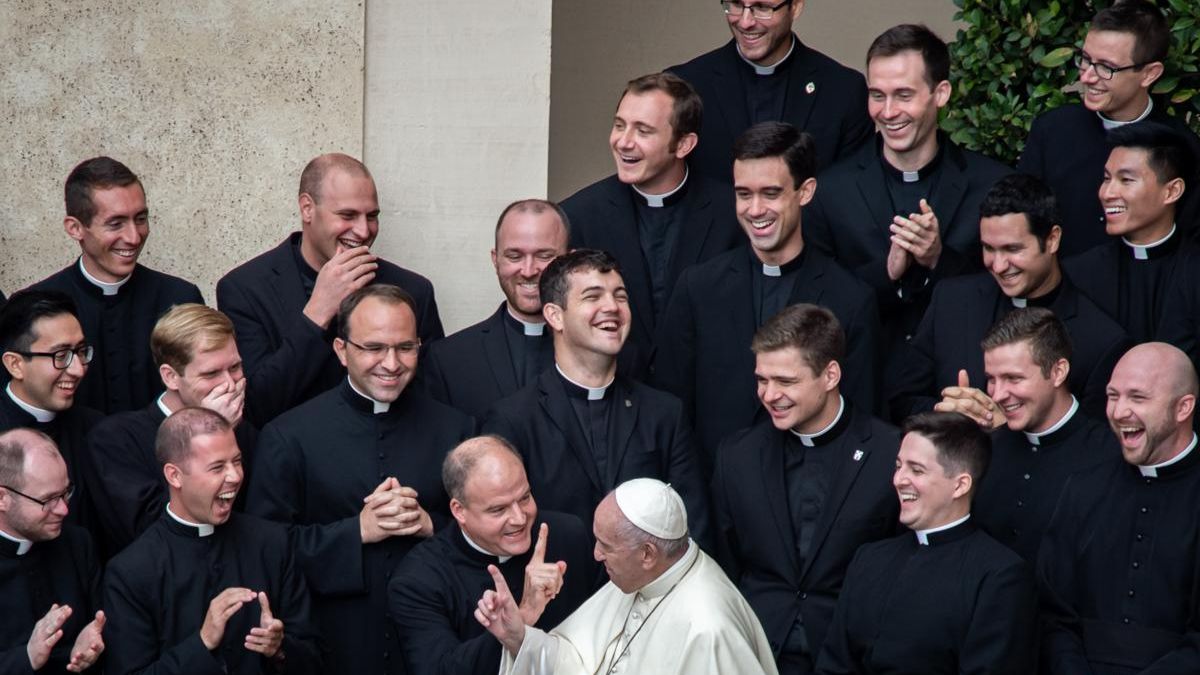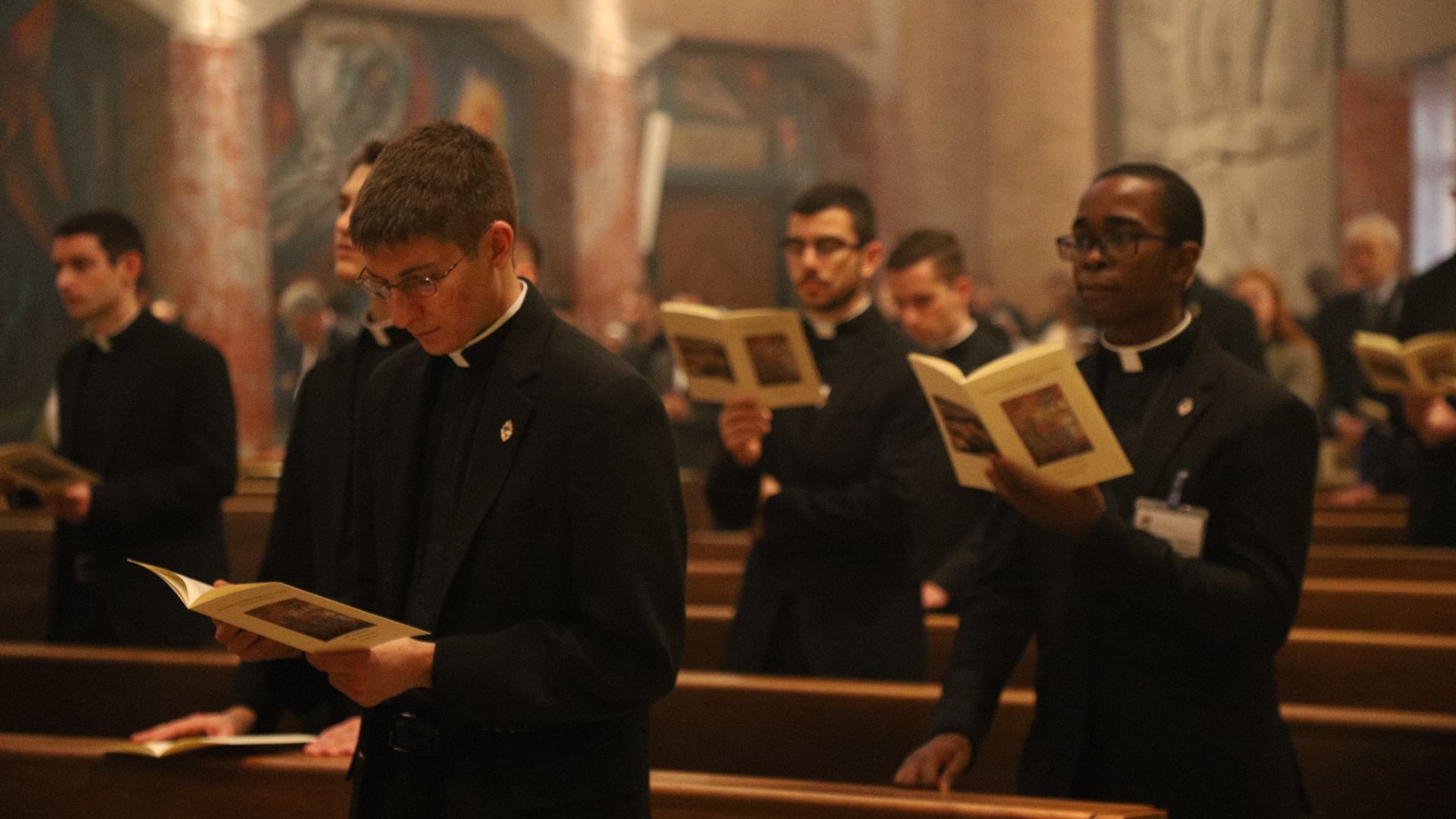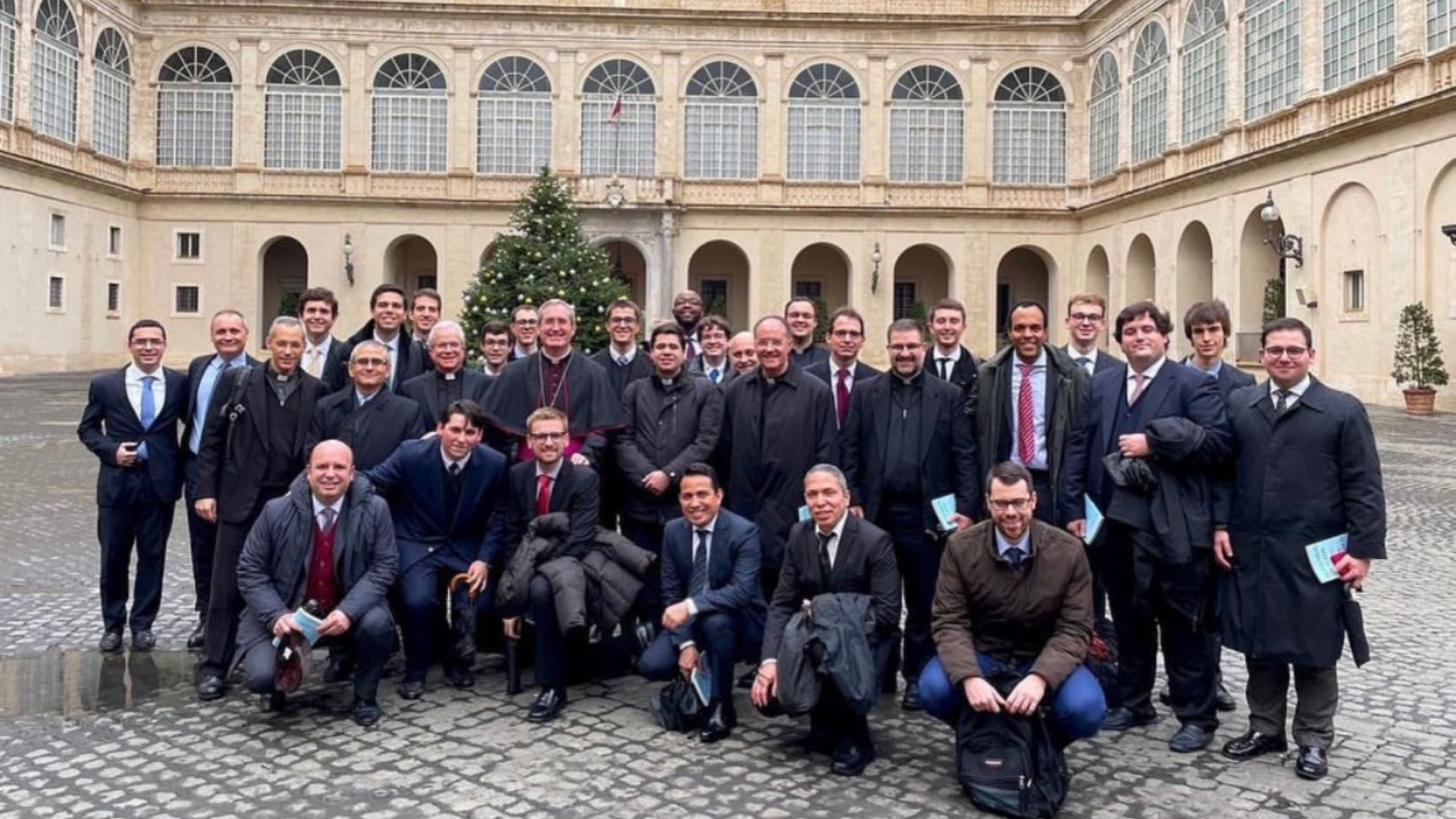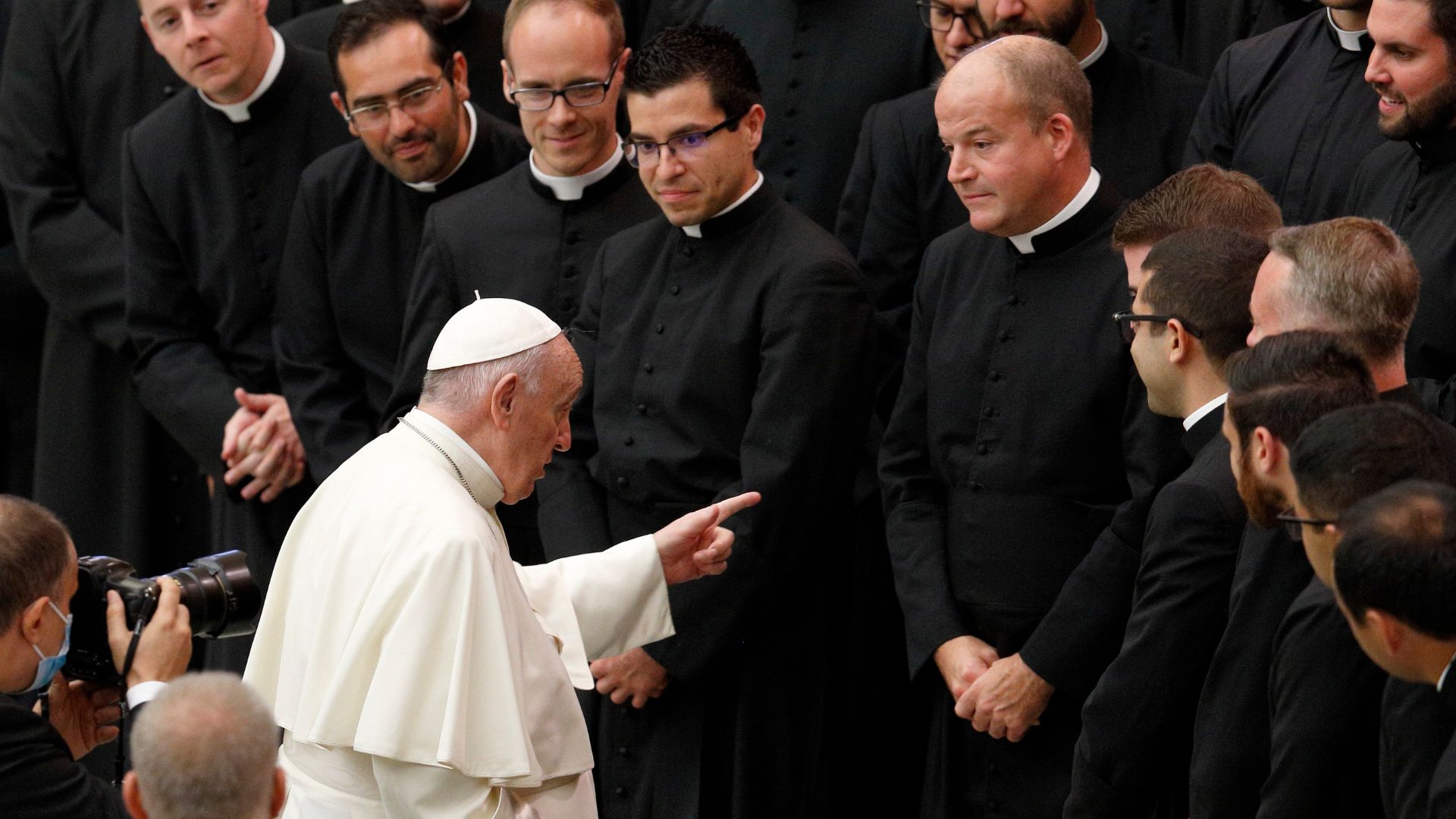Many priests ask to return to the contemplative life. Why? We reflect.
🇮🇹 Sacerdoti in crisi o siamo incapaci di ascoltare il Signore?
In recent times, there have been numerous reports from around the world about priests, even young ones, choosing to leave parish life and retire to a life of prayer. Others, ask to enter religious orders. Still others leave the ministry after a few years, if not months. These choices should not be perceived, as the media tries to do in reporting them, as defeats, but should make us reflect.
Very often, even among priests, one hears the seminary referred to as a trauma experienced. A part of the episcopate, clearly steeped in ideology, responds to this rejection by increasing the years of formation. A choice that, clearly, solves absolutely nothing. We end up, then, with empty seminaries or seminaries full of people entering at 40-50 years of age. Young seminarians who are forced to do ten years of seminary just because the rector or the bishop on duty does not admit that the candidate is different from him. ‘Traditional’ seminarians are actually sent to practically Protestant institutions just to ‘re-educate’ them. Even in priestly training, in fact, we in the Church have given room for personalisms.
If a young man has had a ‘traditional’ parish priest, it is a drama. When he arrives at the seminary, he has to go through re-education.

Of ‘personalisms’, then, we must speak when we are faced with, formators or bishops, who choose not to admit a candidate to orders. Very often it happens that these people, probably convinced that they are the only interpreters of the Holy Spirit, persecute the ‘candidate’, wherever he goes, by making their negative opinion known. What is the point of all this?
It only serves to pander to one’s ego. Such an attitude is certainly not ecclesial. There are many reasons why a young person may not be suitable for a given reality. It may be a territorial problem, it may be the community itself that is not the right one, there may be a problem of maturity on the part of the candidate, and, not to be forgotten, an inability on the part of the formator. If this person really is not suitable for priestly life, he will certainly find more people to confirm this. But why persecute him?
These are the symptoms of a pathology, practically all of which relate to an underlying problem: the inability to serve. Whoever is called to serve, within the Church, must be truly convinced of the fact that, even without him/her, the Lord could do well. Indeed, he could do better. If a young man presents himself at the door of the diocesan seminary and I, after getting to know him, believe that that is not his vocation, I must accept, without any rancour, that he may take a different path with another trainer and in another reality. It is certainly not the end of the world.
At the same time, and here we come to the point, we must start taking the formation of both priests and religious seriously.

Seminar: a place for training?
All too often, those who find themselves within the seminary structure as formators think they are being given a piece of DAS to mould. Thus, one encounters those bishops who impose badje for access to the seminary, impose exit bans, or advocate the absolute impossibility of entering the confreres' rooms and so on. Rectors are thus transformed into nursery teachers. Those who enter the seminary, especially today when minor seminaries are seen as something to run away from, are adults and trained. Of course, a nineteen-year-old is not fully mature, but we can certainly assume that he has learned the basics of 'common living' and has attended nursery school.
The task of the novice master/rector, therefore, must be to "form" but not to photocopy equal subjects. Formation, then, cannot be based on control but on a path to be followed. Only in freedom and fraternity will we have free and mature candidates. Otherwise, once the time for control is over, the trouble begins.
Even with regard to timing, we have seen a terrible evolution. If the seminar years will be many, that is better. Basically the aim seems to be to drive people to exhaustion. Our seminarians do more years of training than doctors at university. To what end? I do not believe that the solution is to eliminate the seminary structure, but I do believe that, today, it has become insufficient.

Vocation: religious, monastic or secular?
A young person 'called' to secular life today does not make any different journey from a person 'called' to religious life.
Although there are bishops who have a real fixation on 'living together', this lifestyle does not suit the secular priest. The fraternity of the presbyterate is quite different from religious fraternity. Why should a young man enter the diocesan clergy and not that of a religious order? Formation in the seminary is practically the same as in the religious house: common life, common services, common liturgy. Future life, especially in the Urbe, is still life in common.
Perhaps, therefore, we need to go back to what the Second Vatican Council itself called for and rediscover the roots of charisms. We have many religious orders that have very beautiful charisms. I am thinking, for example, of the Passionist Clerics, the Oratorians, the Dominicans, etc... Each of these orders has a particular charism and this must be expressed in daily life. Not just in the dress, which unfortunately many orders have chosen to abandon (not these mentioned, fortunately), but also in spirituality, evangelisation, etc.
When a young person presents himself in spiritual direction or in the parish and reports that he feels a particular call, we must avoid 'advertising' 'our reality'. If I am a secular priest, I must not force the candidate to become secular. We must provide all the tools so that that person can choose, in freedom, which reality he feels is closest to his sensibility.
In Lombardy there are seminaries that focus everything on 'the oratory'. Without an oratory, the life of the Church is over. The moment there is a candidate who is not 'in tune' with the oratory, it is a drama. They send you home. Yet, the priest is not called upon to hop, back and forth, around the football pitch or to hold the cash register at the oratory bar. These are the things that the laity can do. The priest has another task and that is to bring God into the midst of these young people. The assessment of the candidate cannot be made with regard to these aptitudes. Moreover, if the formator notices that, perhaps, a monastic or religious life is more appropriate, he must discuss it with the young person and let this be verified. Too often we have let vocations 'slip through our fingers', just because we have not spent enough time on them. The risk is that we then have a disgruntled priest or lay person.
Especially after the Second Vatican Council, we saw these religious and monastic orders ordaining as priests anyone who entered a monastery. The figure of the 'brother converso / layman' has almost disappeared. Yet, the Lord also raised up these vocations and has not stopped doing so. We simply clericalised even that which was not to be clericised. Thinking, moreover, that those who are not ordained as priests are not the 'top'. This, yes, is a drift of clericalism.
On several occasions I have met presbyters who have asked the bishop for a period of prayer and retreat in a monastery. A year, even. The reaction of their bishop was, to say the least, terrifying. Just as 'administrators' immediately discouraged the priest and said: 'Eh but I lose a priest, the parish remains empty'. Of course, no one wants to debunk this 'organisational' aspect, but the pastor has the task of worrying about the spiritual and psychological condition of his presbyter. Better an empty Church than a priest in crisis. If the priest needs a time of rest and prayer, the Lord will certainly know how to illuminate that tiredness and make that vocation stronger. There are two issues we must address: firstly, priests today are called to do too many things that have nothing to do with their ministry; secondly, we are living in a historical period in which even the Pope does not encourage those who live the ordained ministry.
How to respond to these needs? Perhaps we need to go back to basics, back to the tabernacle. Even the Pope said this to the Community of St. Mary Seminary of the Diocese of Cleveland, just yesterday. How much fruit perpetual Eucharistic adoration has borne in those realities that have promoted it.
Other bishops were faced with priests who expressly asked to go to a monastery or live as hermits in quiet locations. Devote themselves completely to prayer. Here, too, there was clearly the terror of the bishops. A priest who withdraws himself in prayer, however, is not the drama but an asset. He, called to this kind of gift and particular contemplation, will be able to intercede so that germs of vocation may be raised in that same particular Church.

Honest answer, no personalism
Only if we serenely respond, and help to respond, to the Lord's Call will we never lack what we need. The answer, then, to the lack of vocations is not to engage the laity but to pray. The laity have their duties and are part of the Church and perform the tasks entrusted to them, but how to 'obtain' holy priests we know very well. The Lord told us: "Rogate ergo Dominum messis, ut mittat operarios in messem suam". The Lord will not fail to provide what we ask for with a sincere heart.
I have no solutions regarding the formation of the secular priest, quite the contrary. Perhaps, however, it would be necessary to divide the week completely between parish and seminary structure. Without forgetting that, unfortunately, it will then depend a lot on "where you will be and who you will be with".
The liturgy of the hours in the seminary, for example, is certainly a richness, but there is a risk of tying the candidate to the community. Once the community is removed, after sacred ordination, that liturgy of the hours will become superfluous. Or, the most pious will recite the breviary either in the morning or in the evening, all together. Yet, the liturgy of the hours has an important significance. Divided throughout the day, at precise hours, it serves precisely to remind the priest that he is not a steward but must always return to the Lord.
The period of formation must also be a period of questioning: what does the Lord want from me? Unfortunately, today we are witnessing a kind of hysteria. For some matters, you are regarded as an already ordained priest; for other matters, woe to you for feeling too 'clerical'. So: woe to relational experiences, but woe to wearing the cassock. Will anyone ever explain the meaning of these choices? Do military trainees not wear a uniform? Do they have traumas because of this? If they leave, do they die because they put on the uniform? Mah.
Perhaps the crisis we are experiencing is the result of this inability to follow a vocation. We often forget that there is also a vocation within a vocation. A priest who, after ten years of active ministry, feels called to the contemplative life has not failed. Rather.
Let us not forget that the realities that live their charism in the style of the founders, whatever they may be, have no vocation or 'survival' problems. Even if some want to demonise them, those are the most thriving. Perhaps, then, it is time to really return to the tabernacle, to Eucharistic adoration, and to flee ideologies, because vocation is a serious matter and people's lives are at stake. Here, too, we risk abusing consciences.
R.I.
Silere non possum
Anyone wishing to contribute to the reflection can write to redazione@silerenonpossum.it